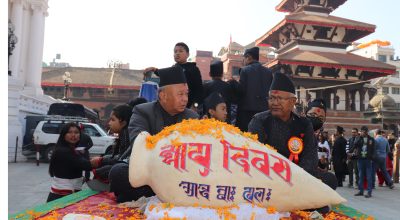
India is damaging its international prestige while its apparatus is engaging in spying activities on several countries. Canada, Australia, the US, and the UK have already expelled Indian diplomats in spy cases, and there have been reports on other countries too. India’s neighboring countries have been tired of Indian interference, spying activities, and unnecessary encroachment for a long time. While these activities are damaging India’s prestige at the regional and global levels, the sad thing is that Indian establishments have not yet realized this allegation and its negative impacts.
India’s intelligence agencies, notably the Research and Analysis Wing (RAW) and the Intelligence Bureau (IB), play crucial roles in safeguarding national interests globally. Their activities extend beyond domestic borders, often focusing on gathering strategic information, countering threats, and fostering diplomatic relations. In recent years, India’s intelligence efforts have been notably active in Australia, Canada, and the United States, driven by geopolitical interests and the need to navigate complex international dynamics.
India-Australia relations have evolved significantly, marked by strategic partnerships and shared interests in the Asia-Pacific region. Indian intelligence agencies operate discreetly in Australia, focusing on several key objectives. RAW collaborates with Australian agencies to monitor and counter terrorist activities, especially those linked to extremist groups operating in the region. The agencies exchange intelligence to preempt threats and ensure regional stability. By providing crucial intelligence and fostering diplomatic ties, RAW helps shape Australia’s stance on regional issues, including maritime security and economic cooperation.
An example of India’s intelligence operations in Australia involves monitoring Chinese activities in the Asia-Pacific. RAW and other agencies gather information on Chinese military deployments, economic initiatives, and diplomatic maneuvers.
The related sources state that the Indian spies were banished after they were discovered attempting to gather intelligence on secret information regarding Australia’s commercial dealings, airport security, and key defence projects. According to reports, in 2020 the Australian Security Intelligence Organisation (ASIO) busted a foreign spy operation that was suspected of closely monitoring Australia’s Indian community and cultivating connections with both sitting and retired politicians.
In Canada, India’s intelligence agencies operate with similar objectives, albeit with a nuanced approach tailored to the bilateral relationship:
Given Canada’s expertise in technology and innovation, Indian agencies focus on cybersecurity threats and technological espionage. Cooperation between RAW and Canadian counterparts strengthens defenses against cyber intrusions and facilitates the exchange of best practices. The large Indian diaspora in Canada provides a fertile ground for intelligence activities. Agencies monitor diaspora activities to safeguard national interests, counter radicalization, and foster cultural diplomacy. RAW gathers intelligence on Canada’s energy policies, natural resources, and environmental strategies.
The plan to kill Pannun was overseen by RAW officer Vikram Yadav, who was connected to the death of Sikh activist Hardeep Singh Nijjar in Canada in June [2023]. According to the report, which the Washington Post claimed was based on interviews with over thirty current and former senior security officials in Australia, Britain, Canada, Germany, India, and the United States, Yadav gave instructions to a hired assassin.
India’s intelligence engagements with the United States are multifaceted, reflecting their strategic partnership and shared concerns. RAW collaborates closely with US intelligence agencies on counterterrorism operations, intelligence sharing, and joint military exercises. This partnership enhances mutual security interests and strengthens bilateral ties. Indian agencies monitor US political developments, policy shifts, and international engagements. This intelligence helps Indian policymakers anticipate changes in US foreign policy and align India’s strategic interests accordingly.
A notable example of India’s intelligence operations in the US involves monitoring Pakistan-based terrorist groups’ activities with links to transnational terrorism. Through coordinated efforts, Indian and US agencies disrupt terrorist networks and prevent potential attacks, demonstrating effective bilateral cooperation in combating global threats.
In November last year, a senior official in the Biden administration announced charges against an Indian individual suspected of masterminding the attempted murder and claimed that the US had foiled a conspiracy to kill Sikh separatist leader Gurpatwant Singh Pannun. In a statement released by the White House on November 22, it was stated that U.S. officials brought up the matter with the highest ranking officials in New Delhi, voicing worries about possible involvement by the Indian government. Samant Goel, the head of the Indian spy agency Research and Analysis Wing, or RAW, at the time, reportedly gave his approval to the plan to hire a hit team to kill Sikh activist Pannun. The plan was eventually foiled by U.S. authorities, according to the Post report.
Instances where Indian spies have been caught or accused of espionage in foreign countries have strained bilateral relations. These incidents often lead to diplomatic protests, expulsions of diplomats, and a loss of trust between nations. Espionage activities, if perceived as overly aggressive or unethical, can tarnish India’s image as a responsible global actor. Allegations of espionage undermine India’s efforts to build trust and cooperation on international platforms.
In some cases, spy activities that come to light through media coverage can negatively influence public opinion in foreign countries. This can impact India’s standing in global public opinion and influence perceptions of its foreign policy intentions.
In 2017, Indian intelligence agencies were accused of meddling in Nepal’s internal affairs, leading to a deterioration in bilateral relations. The incident raised concerns about India’s perceived interference in its neighbor’s sovereignty. Espionage activities between India and Pakistan have been a longstanding issue, contributing to mutual mistrust and periodic diplomatic crises. Such activities complicate efforts to build peace and stability in the region.
Without mentioning India, Australia’s top intelligence officer, Mike Burgess, stated in 2021 that his organization had discovered a “nest of spies.” Australia retaliated by quietly expelling at least four Indian intelligence operatives who were disguising themselves as ambassadors.
While intelligence operations are a necessary component of national security, the manner in which they are conducted abroad can significantly impact India’s international standing. To mitigate damage to its reputation, India must balance its strategic imperatives with respect for international norms and diplomatic protocols. Transparent dialogue and adherence to ethical standards in intelligence activities are essential to uphold India’s credibility as a responsible global actor.
India’s intelligence agencies, notably RAW and IB, have occasionally faced scrutiny for their activities abroad, which have led to concerns about their impact on India’s international reputation. While intelligence operations are crucial for national security and strategic interests, certain instances have indeed caused diplomatic strains and raised ethical questions.















